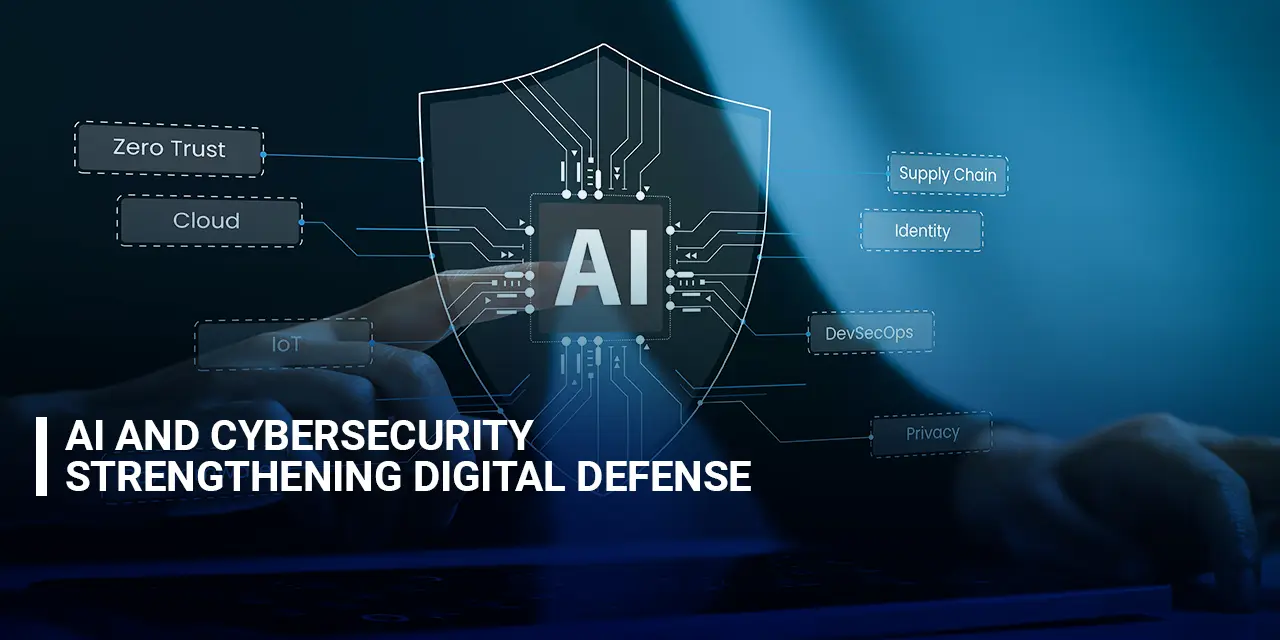Research
Share Knowledge
Brainstorm Ideas
The Evolving Threat Landscape
The digital realm is constantly evolving, and so are the tactics employed by cybercriminals. Gone are the days when simple firewalls and antivirus programs were sufficient to ward off threats. Today, we face advanced persistent threats (APTs), ransomware attacks, and sophisticated phishing schemes that require equally advanced defence mechanisms.
The Role of AI in Cybersecurity
AI brings a revolutionary dimension to cybersecurity by leveraging machine learning, deep learning, and other advanced algorithms to enhance threat detection, response, and prevention. Here's how AI is making a significant impact:
1. Threat Detection and Analysis:
AI excels at analysing massive datasets in real-time, enabling it to identify patterns and anomalies that might go unnoticed by traditional security systems. Machine learning algorithms can recognize deviations from normal behaviour, flagging potential threats for further investigation.
2. Behavioural Analysis:
One of AI's strengths lies in its ability to understand and adapt to evolving patterns of user behaviour. By establishing a baseline of normal activity, AI systems can quickly identify deviations, signalling a potential security breach. This proactive approach enhances the capacity to detect emerging threats before they can cause substantial damage.
3. Automated Incident Response:
AI facilitates swift and automated responses to security incidents. Through predefined rules and adaptive learning, AI systems can take immediate action to mitigate the impact of a cyberattack. This speed is crucial in minimizing potential damage and preventing the spread of threats across networks.
4. Zero-Day Threat Protection:
Traditional security measures often struggle to defend against zero-day threats—exploits that target vulnerabilities before they are officially recognized. AI's ability to learn and adapt in real-time enables it to detect and neutralize these threats, providing a crucial layer of defence against the unknown.
Challenges and Ethical Considerations
While AI presents immense potential for bolstering cybersecurity, it is not without its challenges and ethical considerations. The following points highlight some of the critical issues:
1. Adversarial Attacks:
Cybercriminals are not oblivious to the use of AI in cybersecurity. They have begun employing adversarial attacks, manipulating AI systems to provide false information or bypass security measures. As AI evolves, so too must our strategies for protecting against these sophisticated attacks.
2. Privacy Concerns:
The deployment of AI in cybersecurity often involves analysing vast amounts of data, raising concerns about privacy. Striking a balance between effective threat detection and respecting user privacy is a delicate challenge that requires careful consideration.
3. Bias in AI Models:
The algorithms that power AI systems are only as unbiased as the data they are trained on. If the training data contains biases, the AI model may inadvertently perpetuate them. This can result in discriminatory outcomes, posing ethical challenges in the context of cybersecurity.
4. Human Oversight:
Despite the capabilities of AI, human oversight remains essential. AI systems should complement human expertise rather than replace it entirely. Human intuition, creativity, and ethical judgment are indispensable components in navigating the complex landscape of cybersecurity.
The Future of AI in Cybersecurity
As technology continues to advance, the integration of AI into cybersecurity is expected to deepen. Here are some potential future developments:
1. Predictive Analytics:
AI's predictive capabilities may evolve to the point where it can forecast potential cyber threats based on historical data, enabling organizations to proactively address vulnerabilities before they are exploited.
2. Enhanced Collaboration:
AI systems may become more adept at collaborating with each other, sharing threat intelligence in real-time to create a collective defence mechanism against rapidly evolving cyber threats.
3. Explainable AI:
The development of more transparent AI models will be crucial in addressing concerns related to bias and ensuring that decisions made by AI systems can be easily understood and scrutinized by humans.
4. Quantum Computing and AI:
The rise of quantum computing could revolutionize both AI and cybersecurity. Quantum AI algorithms may lead to the development of even more powerful encryption methods and threat detection capabilities.
How Can We Help?
ITPN has leading-edge capabilities, top-class experts and pioneering experience in this area so please contact us if you have any questions or need assistance of our services.
Conclusion
In conclusion, the bond of AI and cybersecurity represents a significant leap forward in our digital defence capabilities. As threats continue to evolve, so too must our defences. While challenges and ethical considerations persist, the potential benefits of AI in strengthening our cybersecurity posture cannot be ignored. By embracing this technological synergy, we can pave the way for a more secure digital future.

